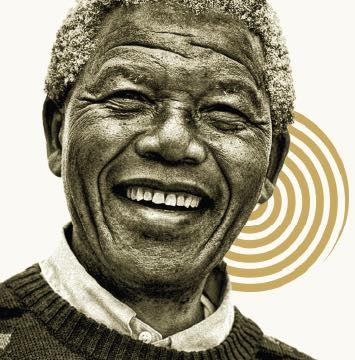
Image from Nelson Mandela FB
By Dr Rahim Said in collaboration with Tan Sri Jawhar Hassan
I had a long chat recently with a former head of ISIS Malaysia — that’s Institute of Strategic and International Studies, not the other one. Over tea, our conversation turned to the Nobel Peace Prize, that grand annual spectacle that pretends to honour peace but too often rewards politics.
My companion chuckled, recalling the year Barack Obama received the Nobel Peace Prize barely months after taking office. “He hadn’t even had time to start a war,” came the sardonic remark, “but he soon made up for it in Libya.”
It’s a fair point. How many times have we seen the Nobel Peace Prize given not to peacemakers but to politicians still dabbling in conflict?
Theodore Roosevelt, who built America’s naval power. Henry Kissinger, who presided over the bombing of Cambodia and Vietnam. Yitzhak Rabin, once part of an underground militia that the British called terrorist.
The pattern is familiar: peace through power wins over peace through principle.
My interlocutor sighed, stirring his tea. “Sometimes it feels like the Nobel Committee mistakes moral posturing for moral courage.”
And he’s right. Even Alfred Nobel himself was a man of paradox — the father of dynamite funding the prize for peace. The Peace Prize was born out of guilt and irony; it has grown into a global pageant of selective virtue.
So perhaps, as my thoughtful companion suggested, it’s time for a new kind of peace prize. One that celebrates not those who talk about peace from podiums, but those who live it — often quietly, without fanfare.
He called it The Mandela Peace Prize.
That name alone carries moral gravity.
Nelson Mandela embodied everything the Nobel has lost — forgiveness, dignity, and moral consistency. He didn’t just call for reconciliation; he became reconciliation.
Mandela’s peace was not a press release. It was a lifelong act of courage. After 27 years in prison, he walked out without bitterness and built a nation out of its broken pieces. That’s not politics. That’s transcendence.
Imagine, then, a Mandela Peace Prize: awarded annually under the stewardship of respected figures from South Africa — people who understand the weight of Mandela’s legacy. No tuxedos in Oslo, no choreographed applause, no self-congratulation.
Instead, it would honour the nameless and the tireless: the medic in Gaza, the teacher in Myanmar, the negotiator in Sudan, the village leader who defuses ethnic tension before it explodes. Those who bring peace without cameras and hashtags.
As my companion put it, “The Nobel loves applause. Mandela preferred silence — the kind that comes when the guns stop.”
That line stayed with me long after our conversation ended.
Perhaps what the world needs today is not another glittering ceremony but a return to moral clarity. After all, peace isn’t made by committees in Oslo or speeches at the UN. It’s made by people — ordinary, flawed, steadfast — who refuse to surrender to hate.
The Nobel Peace Prize, in its present form, often rewards the powerful for talking about peace while others die for it. Maybe it’s time we flipped that equation.
A Mandela Peace Prize would remind us that true peace doesn’t come from strategy but from humanity. And perhaps, one day, when such a prize is born, we’ll look back at a century of Nobel’s noise and finally hear what peace is supposed to sound like — quiet, honest, and real.
WE